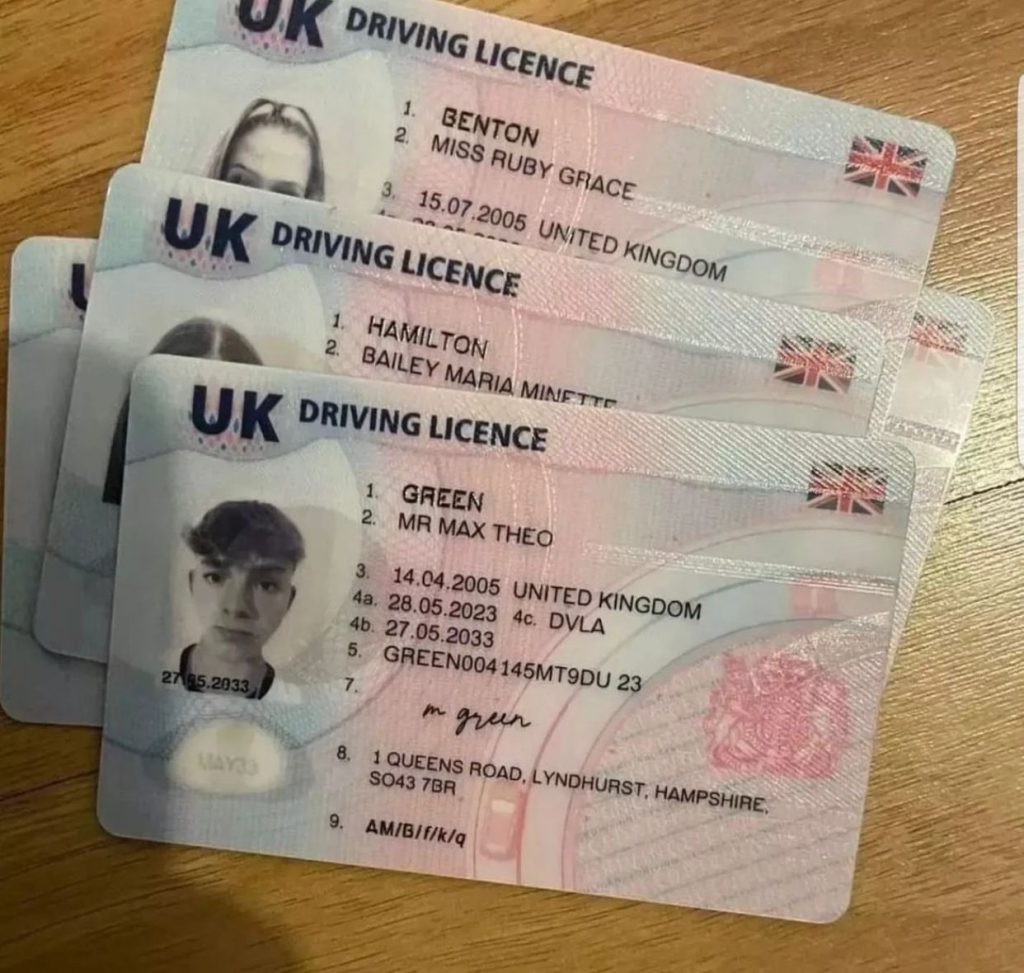Beyond the Badge: Why Your Driver’s License Renewal is Crucial, Regardless of Your Car’s Brand
Take a moment. Glance out your window, or picture your driveway. What do you see? Is it a gleaming sedan from a globally recognized powerhouse like Toyota or Ford? Perhaps a sleek SUV from a luxury marque like BMW or Mercedes-Benz? Or maybe you prefer something a little more niche, a vehicle that turns heads for its unique design or performance, like a Subaru Outback or a classic Volkswagen Beetle. The brand of your vehicle is often a point of pride, a reflection of your personality, your budget, and your lifestyle.
But here’s a thought that might surprise you: The brand of your car has absolutely no bearing on a critical, non-negotiable aspect of your driving life: renewing your driver’s license.
Yes, you read that right. Whether you’re behind the wheel of the most popular car on the planet or a rare vintage model, the process, requirements, and importance of keeping your driver’s license up-to-date remain identical. This might seem obvious, but in our fascination with automotive brands, it’s easy to overlook the fundamental legal and safety framework that governs our ability to drive at all.
This post isn’t about dissecting the merits of a Honda Civic versus a Tesla Model 3. Instead, it’s a comprehensive guide to understanding why renewing your driver’s license is paramount, what’s typically involved, and why you absolutely shouldn’t let it lapse – no matter how impressive (or understated) your current ride.
The Ubiquitous Need: Why Everyone Needs a Valid License
Your driver’s license is more than just a permission slip to operate a motor vehicle. It’s a testament to your learned ability to navigate public roads safely and responsibly. It signifies that you’ve met the state’s criteria for knowledge of traffic laws, safe driving practices, and basic physical and cognitive capabilities.
Think of it as your passport to mobility. Without it, your ability to commute to work, run errands, pick up your children, or embark on a spontaneous road trip is severely curtailed. Beyond the inconvenience, driving with an expired license carries significant consequences.
Consequences of an Expired License: A Stark Reality
Operating a vehicle with an expired driver’s license can lead to a cascade of negative outcomes. These vary by jurisdiction, but the common threads are universally unwelcome.
| Consequence | Potential Impact |
|---|---|
| Legal Penalties | Fines, increased insurance premiums, points on your driving record, and in some cases, even misdemeanor charges. |
| Vehicle Impoundment | Law enforcement officers have the authority to impound your vehicle if you are caught driving with an expired license, leading to towing and storage fees. |
| Insurance Invalidation | Most auto insurance policies will become void if you are involved in an accident while driving with an expired license, leaving you personally liable for damages. |
| Difficulty with Future Licensing | Repeated offenses or a long period of driving with an expired license can complicate future attempts to obtain or reinstate your license. |
| Obstacles in Daily Life | You might face difficulties with job applications, renting vehicles, or even proving your identity in certain situations. |
The message is clear: don’t let your license expire. It’s a burden you can easily prevent.
Demystifying the Renewal Process: Tailored to You, Not Your Car
While the brand of your car is irrelevant to the renewal process, the process itself is tailored to your individual circumstances and the regulations of your specific state or country. However, there are common elements you can generally expect.
Typical Driver’s License Renewal Requirements:
While specifics vary, most jurisdictions follow a similar pattern. Here’s a breakdown of what you might need to prepare:
- Proof of Identity and Residency: This is crucial. You’ll need to prove you are who you say you are and that you reside in the state issuing your license.
- Examples:
- Original birth certificate
- Valid U.S. passport
- Social Security card
- Utility bills in your name at your current address
- Lease agreement or mortgage statement
- Bank statements
- Examples:
- Completed Application Form: Most states offer these online, allowing you to fill them out beforehand.
- Vision Test: A fundamental requirement to ensure you can see adequately to operate a vehicle safely. This is usually conducted at the licensing office.
- Knowledge (Written) Test: While not always required for every renewal, some states mandate this periodically, especially if your license has been expired for an extended period or if there have been significant changes in traffic laws.
- Driving Skills Test: This is rarely required for standard renewals unless there are concerns about your driving ability or if you’re seeking to add a new class of license.
- Renewal Fee: There’s a fee associated with renewing your license, which varies by state. Be prepared to pay this at the time of your appointment.
- Old Driver’s License: Bring your current, soon-to-expire license.
Pro Tip: Always check your state’s Department of Motor Vehicles (DMV) or equivalent agency’s website for the most accurate and up-to-date information regarding renewal requirements and procedures. They often have checklists and online appointment scheduling to streamline the process.
The “Popular Brand” Fallacy: Why Car Choice is a Red Herring
Let’s circle back to the initial premise. Why does the idea of “popular brand” even come up in relation to driver’s licenses? It’s likely a subconscious association – we often think about our car as an extension of ourselves, and our driving license as the key that unlocks its use. However, the reality is far more standardized.
Consider this table:
| Driver’s License Renewal Aspect | Popular Brand Vehicle Owner | Niche Brand Vehicle Owner |
|---|---|---|
| Eligibility | High | High |
| Required Documentation | Standard State Requirements | Standard State Requirements |
| Vision Test | Required | Required |
| Knowledge Test (if applicable) | Required | Required |
| Renewal Fee | Standard State Fee | Standard State Fee |
| Importance of Validity | Paramount | Paramount |
As you can see, from the perspective of your driver’s license, there’s no difference. The road doesn’t care if you’re driving a Camry or a Corvette; it only cares that you are legally authorized and capable of sharing it safely.
When to Renew: Don’t Wait Until the Last Minute!
The best time to think about renewing your driver’s license is before it expires. Most states allow you to renew well in advance, often up to a year before your current license runs out. This is a wise strategy to avoid last-minute rushes and potential disruptions.
Here’s a suggested timeline:
- Six Months Before Expiration: Start checking your state’s DMV website for renewal information. Note down the specific requirements and fees.
- Three Months Before Expiration: Gather necessary documents. If you need to update your address or have any name changes, get those official documents ready.
- One to Two Months Before Expiration: Schedule your appointment, if required. Many DMVs require appointments for licensing services, and popular times can book up quickly.
- Within the Expiration Month: Complete the renewal process. This ensures you have your new, valid license in hand before your old one expires.
What if your license has already expired? Don’t panic, but act swiftly. The longer it has been expired, the more likely you are to face stricter requirements, such as needing to retake the driving skills test.
Navigating the Digital Age: Online Renewals and Other Options
Many states have embraced technology to make the renewal process more convenient. Depending on your eligibility, you might be able to renew your license online, by mail, or via a mobile app.
Common Renewal Methods:
- Online Renewal: Often the fastest and most convenient option. Typically available for those renewing a standard driver’s license without significant changes to their record or license class.
- Mail-in Renewal: May be available for certain individuals or for specific types of renewals.
- In-Person Renewal: The traditional method, usually at a local DMV office. This is often necessary for first-time renewals after a long lapse, those needing to retake tests, or when significant changes are being made.
- Mobile App Renewal: Increasingly, states are offering renewal services through dedicated mobile applications.
Check your state’s DMV website to see which options are available to you.
Frequently Asked Questions About Driver’s License Renewal
To further clarify any lingering doubts, let’s address some common questions:
Q1: My car is very old. Does that affect my license renewal? A1: No, the age or model of your vehicle has no bearing on your driver’s license renewal. The requirements are based on your eligibility and the state’s regulations for all drivers.
Q2: I drive a luxury car. Do I need to meet different requirements for my license renewal than someone with a basic car? A2: Absolutely not. The requirements for driver’s license renewal are standardized for all drivers, regardless of the brand, make, model, or value of their vehicle.
Q3: What happens if I miss my renewal deadline? A3: Driving with an expired license is illegal. You will face penalties, and it may complicate the process of renewing your license later. Act as soon as possible to renew.
Q4: Can I renew my license if I’ve moved to a new state? A4: No, you cannot renew your old state’s license if you are no longer a resident. You will need to obtain a driver’s license from your new state of residence, which typically involves a new application, tests, and fees.
Q5: Do I always have to take a written test when I renew my license? A5: Not always. Many states only require a written test periodically (e.g., every 8 or 16 years) or if your license has been expired for a significant duration. Your state’s DMV website will have the specifics.
Q6: My vision has worsened. What should I do before renewing my license? A6: If you wear glasses or contacts for driving, ensure you have them with you for the vision test. If you have concerns about your vision, consult an eye doctor before your renewal appointment. You may need a prescription update or a note from your doctor.
Q7: Is there a grace period after my license expires? A7: While some states may have a short grace period for driving once expired in certain situations (often with specific documentation), it’s generally not advisable to rely on this. The license itself is considered expired on its stated expiration date. It’s always best to have a valid license.
Conclusion: Your License – A Universal Necessity
The allure of a popular car brand is undeniable. It speaks to trends, utility, status, and personal preference. But when it comes to the legal and safety framework of driving, these distinctions fade into insignificance. Your driver’s license is the fundamental requirement that unites all drivers on the road.
Renewing your driver’s license is not a minor administrative task; it’s a vital step in ensuring your legal right to drive, your safety, and the safety of others. It’s a responsibility that transcends the car you drive, the badge it bears, or the price tag it commands.
So, take a moment to check the expiration date on your driver’s license. Don’t let the brand of your car distract you from this essential duty. Visit your state’s DMV website, understand the requirements, and schedule your renewal. A valid driver’s license is your key to freedom on the road, a freedom that is earned and must be maintained, regardless of whether you’re driving the most popular car on the block or one that’s truly one of a kind.

